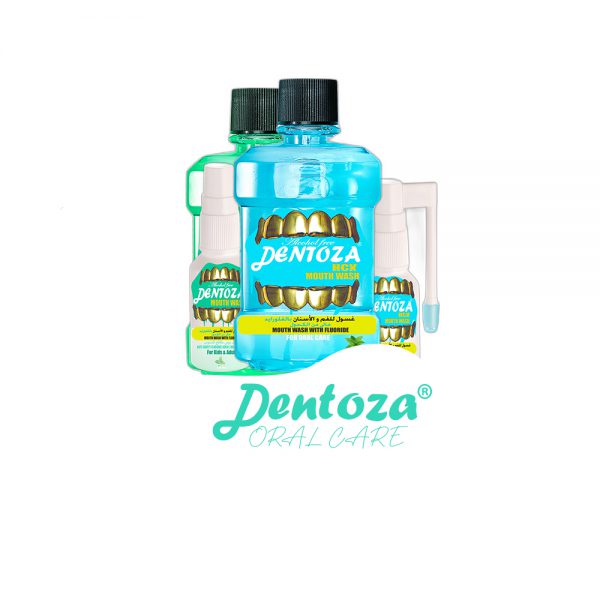
INTRODUCTION
The oral cavity is a route of entry, infection and transmission of microorganisms, including the SARS-CoV-2 coronavirus. Several researchers have proposed that the use of mouthwashes with certain antiseptics could reduce the viral load in the oral cavity and in this way, help to minimise the transmission of the virus, which is especially important due to the severity of the disease it generates (COVID- 19) and due to the proliferation of the variants of the virus that may appear.
AIM
The aim of this preclinical study is to determine the SARS-CoV-2 degradation capacity of several mouthwashes containing Cetylpyridinium Chloride (CPC) and to evaluate the impact on the decrease in infectivity of two variants of the virus – B.1.1.7 and D614G.
MATERIALS AND METHODS
4 experiments were carried out:
- Reduced entry of SARS-CoV-2 pseudovirus into human HEK-293T cells
The ability of CPC to prevent the entry of a SARS-CoV-2 pseudovirus into HEK-293T cells is analysed.
For this, a genetically modified lentivirus is used to express the Spike protein of two SARS-CoV-2 variants – B.1.1.7 and D614G. The lentiviruses are put into contact with the CPC mouthwashes or their vehicles for one minute. Subsequently, the interactions between the Spike protein of the lentiviruses and their binding receptor (the ACE2 protein, present on the surface of HEK-293T cells) are quantified by luminescence (luciferase enzyme reaction).
- The mechanism of action of CPC
The ability of CPC mouthwashes to degrade the lipid envelope of SARS-CoV-2 variants B.1.1.7 and D614G is analysed.
To do this, a mouthwash with 0.07% CPC or its vehicle are put into contact with suspensions of the SARS-CoV-2 variants B.1.1.7 and D614G (volume 1: 1) for two minutes. Subsequently, ELISA is used to measure the amount of the nucleoprotein of the virus in the supernatants.
- Reduction of SARS-CoV-2 infection capacity in VeroE6 cells
The ability of CPC mouthwashes or their vehicles to reduce the infectivity (TCID50) of SARS-CoV-2 variants B.1.1.7 and D614G is analysed.
To do this, the two variants of SARS-CoV-2 are put into contact for 1 and 2 minutes with a CPC mouthwash or with its vehicle, in 1:1 volumes. Subsequently, the infectious capacity of the treated viruses is determined by calculating the infectious dose necessary to kill half of the VeroE6 cell population (TCID50).
- The ability of CPC to exert its antiviral activity in the presence of sterilised saliva.
Finally, the antiviral activity of CPC against the SARS-CoV-2 variant B.1.1.7 is evaluated in the presence or absence of saliva.
A mouthwash with 0.07% CPC or culture medium is used and put into contact with the B.1.1.7 variant, in the presence or absence of sterilised saliva from an unvaccinated, COVID-19-negative donor.
The viruses in VeroE6 cells were assayed for infectivity (TCID50) in the presence or absence of sterilised saliva.
The mouthwashes used in the experiments were:
- Mouthwash A: CPC 0.05%
- Mouthwash B: CPC 0.07%
- Mouthwash C: CPC 0.05% + Chlorhexidine (CHX) 0.12% (Dentoza CHX®)
The vehicle of mouthwashes A, B and C were used as controls. Meaning, the same formulations, but without CPC.
RESULTS
- Reduction of the entry of SARS-CoV-2 pseudovirus in HEK-293T cells
Mouthwashes with CPC were able to inhibit viral fusion of SARS-CoV-2 s variants B.1.1.7 and D614G, in a dose-dependent manner at non-cytotoxic concentrations, reducing viral entry by more than 60% compared to the vehicles, which did not show inhibitory activity. In this way, CPC is singled out as the antiviral ingredient present in mouthwashes.
- The mechanism of action of CPC
The nucleocapsid proteins of the viruses treated with the CPC 0.07% mouthwash were detected at much higher levels than in the vehicle, regardless of the variant used (B.1.1.7 and D614G). In this way, it is demonstrated that CPC was able to very effectively degrade the viral membranes of the SARS-CoV-2 variants analysed, thus confirming that the mechanism of action of CPC on SARS-CoV-2 consists of degradation of the lipid envelope.
- Reduction of SARS-CoV-2 infection capacity in VeroE6 cells
CPC Mouthwashes (A, B and C) were able to reduce the infectivity (TCID50) of SARS-CoV-2 variants B.1.1.7 and D614G by 1,000 times after 2 minutes of contact, while the vehicles had no impact. It was also verified that the mouthwashes used did not have cytotoxic effects on the VeroE6 cells.
CPC, therefore, exerts antiviral activity on SARS-CoV-2, and mouthwashes with CPC have the ability to reduce by 1,000 times the infectivity of a virus stock treated with a 1:1 volume for 2 minutes. In order to resemble the conditions of normal use of a mouthwash, the anti-SARS-CoV-2 activity of CPC was studied after 1 minute of contact between the mouthwash and the viruses, again observing 1,000-fold reductions in virus infectivity.
- The ability of CPC to exert its antiviral activity in the presence of sterilised saliva
Treatment of variant B.1.1.7 with CPC 0.07% mouthwash (mouthwash B, volume 1:10) in the presence of sterile saliva (in a 1:1 volume) produced a 10-fold reduction in TCID50 per millilitre of B.1.1.7 compared to untreated viruses. Therefore, the antiviral activity of CPC was not altered in the presence or in the absence of saliva.
CONCLUSION
Under in vitro conditions, mouthwashes with CPC reduced the infectivity of SARS-CoV-2 variants B.1.1.7 and D614G by 1,000 times after 1 and 2 minutes of contact. CPC was effective at low concentrations and in the presence of saliva. Due to its mechanism of action, CPC would be effective against all currently described variants of the virus.
Bibliografía
Muñoz-Basagoiti J, Perez-Zsolt D, León R, Blanc V, Raïch-Regué D, Cano-Sarabia M, Trinité B, Pradenas E, Blanco J, Gispert J, Clotet B, Izquierdo-Useros N. Mouthwashes with CPC Reduce the Infectivity of SARS-CoV-2 Variants In Vitro. J Dent Res. 2021 Oct;100(11):1265-1272.


